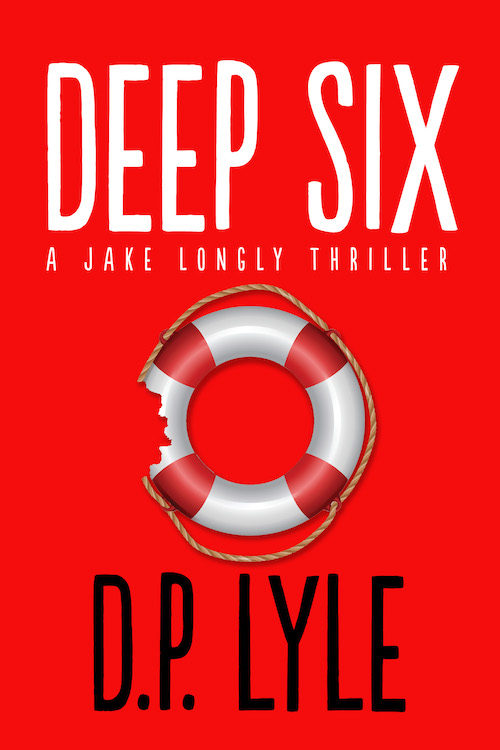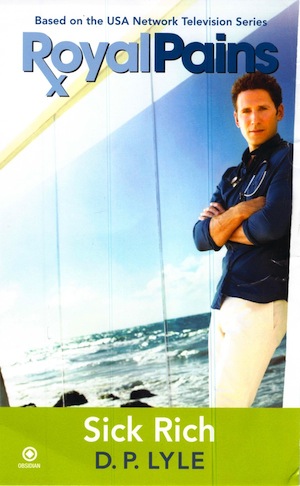Psychotic hallucinations and normal everyday dreams have a lot in common. Both are constructed by the brain based on memories and stored data. Dreams and hallucinations often reflect the person’s experience in that they arise mostly from stored memories and odd interconnections among these bits of information.
Which raises a few interesting questions: Do deaf schizophrenics have truly auditory hallucinations? Do they hear voices or music or is it simply noise? And how would they know what sound and voices anyway? Do those who are blind have visual hallucinations? Do the blind see “real” people and objects in their dreams?

It likely depends on when the person became blind or deaf. If later in life, after they had seen the world and had learned to talk, they would have a fund of visual and auditory memories to call on to construct their psychotic hallucinations. They would see faces and people, buildings and cars, and would hear voices and music and any of the other sounds stored in their memory banks. But what if the person was blind from birth (congenitally blind) or became deaf before learning to speak (pre-lingual deafness)?
Blind individuals can be considered in two broad categories. Congenitally Blind persons are sightless from birth, while Adventitiously Blind persons lose their sight at some later time. Children who are blinded before age five or so tend to have much in common with those who are congenitally blind. Since their blindness onset at such an early age, they possess little memory of images and colors and thus are less able to “see” things compared with those who became blind after age seven. This lack of imagery spills over into their hallucinations and dreams.
Many researchers in this area consider dreaming a “constructive cognitive process.” That is, we construct our dream worlds based upon our sensory experiences. What we see, hear, feel, smell, and taste contribute to the building of our dreams.
Most congenitally blind people are able to “see” spatial relationships in their dream constructs and some can even construct “visual forms,” but they do not “see” the actual objects. What they “see” in their dreams tends to parallel what they “see” in their waking lives. Some are able to construct at least amorphous images better than others. Those who become blind later in life tend to have dream visualizations that parallel their waking visual experiences before they became blind.
The congenitally blind and those who become adventitiously blind before age five may have vivid and detailed dreams but they do not “see” images of people or structures or objects. They tend to feel the same emotions and have similar reactions to nightmares, but their dreams are more amorphous.
Those who become blind between ages five and seven, may or may not see images. It’s individual.
Interestingly, many people who become blind after age seven may have visually detailed dreams forever, while others may do so for only 20 to 30 years. It is as if their memories of images fade and thus the images also fade from their dreams.
In a 1999 study from Queen Elizabeth Psychiatric Hospital in Birmingham, UK by Mckenna and du Feu, the auditory hallucinations of 17 schizophrenic patients with deafness prior to the age of two were evaluated. Ten (59%) reported “hearing” voices and many described the content of what was said. Did they really dig out voices they had heard before age two or were these sounds simply created by the brain with no real memories as guidelines?
In another study from the Department of Psychiatry at the University of Münster in Germany, Schonauer, et al, studied 67 pre-lingually deaf schizophrenics. They found that even though these patients tended to have more visual and tactile (touch) hallucinations than they did auditory ones, auditory hallucinations with voices did occur. Interestingly, some reported visual hallucinations of sign language messages, and odd marriage of visual and “auditory” hallucinations. The authors explained this as “the influence of ‘the deaf way’ of sensory experience on imagery processes.”
The human brain is a complex and poorly understand organ and the issue of hallucinations and dreams in those with the loss of one or more sensory modalities is just one more example.

























Kathryn Fox
September 27, 2009 at 4:22 pm
Doug, this is fascinating. Have never had a deaf schizophrenic patient, but the concept of sign-language hallucinations makes perfect sense.
Do schizophrenics who have poor hearing (as opposed to complete deafness) appreciate being able to hear their auditory hallucinations, or do they mimic the muffled voices that are part of the real world for them?
just a thought…
LikeLike
D.P. Lyle, MD
September 28, 2009 at 6:49 am
Interesting. I don’t know the answer to that but I would suspect that their brain would construct hallucinatory voices similar to what it hears in the “real world.”
LikeLike
Erin
July 13, 2011 at 12:30 pm
I found this article interesting. My grandmother is 86 years old and in the past 10 years has slowly lost her sight due to macular degeneration. Over the past several months, she has reported seeing people and having visual hallucinations. It’s gotten to the point where they interrupt her sleep and she winds up calling security at her senior community complex in the middle of the night. Do you know of any studies on elderly who have lost sight much later in life and have started having hallucinations? As far as her doctors can tell, she doesn’t have dementia and her medications haven’t changed significantly in several years.
Thank you,
Erin, a concerned granddaughter.
LikeLike
D.P. Lyle, MD
July 13, 2011 at 2:32 pm
Erin–I’m sorry but for Medico-Legal reasons I never offer medical advice over the net. I suggest you address this with your or her physician.
LikeLike
Stan
December 28, 2014 at 10:35 am
Blind at 60+ IS CAUSING, DREAMS WITH HALLUCINATIONS. SUCCESSFUL PERSON. Why is
the fear there? Calm outlook is there at a times. Smart, educated persons in this state of life
are not demented. Is a non belief in the Creator a factor? Has this been studied? Thk U
LikeLike
D.P. Lyle, MD
December 28, 2014 at 11:13 am
I can’t comment on any particular situation and I’m not sure anyone is studying such a connection.
LikeLike